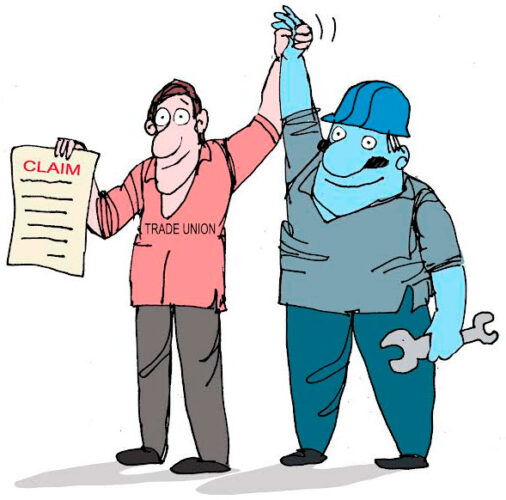
In 27 percent of the cases it was totally or partially right, and this is considered a demonstration of the lack of active and timely participation of unions in any dispute, as well as the weak representation of workers before the employers.
Complaints are a right of workers, both those who are members and those who are not members of trade unions, and can be made in writing or verbally, by telephone or e-mail.
At the time of writing this La Guagua, in the note we bring on board today, there were 27 digital comments from readers who expressed their opinions on the matter, but on this occasion we will focus on this one:
Leandro Castro says:
When I began to read the article, which I immediately found interesting, I thought that they would put the contacts or email addresses of the officials mentioned or of some department or special commission created to address this sad situation of union helplessness because I thought that was the spirit of this journalistic work, but I got to the end and only saw the photos of high-level officials of the national Central de Trabajadores de Cuba (CTC)The CTC (Workers' Central Union of Cuba) was founded on January 28, 1939 by Lázaro Peña under the name Confederación de Trabajadores de Cuba (Confederation of Cuban Workers).
Thanks to the newspaper Trabajadores for the effort it makes by publishing the complaints in a small weekly space that is not enough, but I encourage all of you with the Central de Trabajadores de Cuba (CTC)The CTC (Workers' Central Union of Cuba) was founded on January 28, 1939 by Lázaro Peña under the name Confederación de Trabajadores de Cuba (Confederation of Cuban Workers) at the forefront to make the unions play the role that really corresponds to them, which is THEIR REASON FOR EXISTING because here we have not had «dictatorship of the proletariat» but administrative dictatorship for a long time now. Thank you.
By referring to «the contacts or mailing addresses of the cited officials or of some department or special commission» to which to send the approaches, it is giving a warning signal that you propose to interpret.
While it is true that in Havana, at the headquarters of the Central de Trabajadores de Cuba (CTC)The CTC (Workers' Central Union of Cuba) was founded on January 28, 1939 by Lázaro Peña under the name Confederación de Trabajadores de Cuba (Confederation of Cuban Workers), there is an Office of Attention to Workers, and that in the provinces they are attended by members of the Secretariat at that level, it is necessary to think about Leandro Castro’s approach and check whether the channels for making complaints are sufficiently publicized.
There may be a lawyer in each territory as it is established with priority, but it is not enough that there is one to provide free advice, it is also necessary to take into account that its existence is known and how to access it.
Although the analysis should be carried out everywhere, special attention should be paid to those provincial bureaus that did not receive any complaints during the whole of the past 2023, since this element should be taken into account among the indicators of good performance of the trade union cadres.
The effectiveness of a working system for dealing with complaints cannot be achieved without disclosing these ways of making complaints, and the requirement of the provincial committees of the Central de Trabajadores de Cuba (CTC)The CTC (Workers' Central Union of Cuba) was founded on January 28, 1939 by Lázaro Peña under the name Confederación de Trabajadores de Cuba (Confederation of Cuban Workers) must also be present in this matter.
In summary: This will not be the last time that La Guagua brings the topic on board, as in future outings, we will be addressing each of the digital comments from readers of the article that motivated this journey.